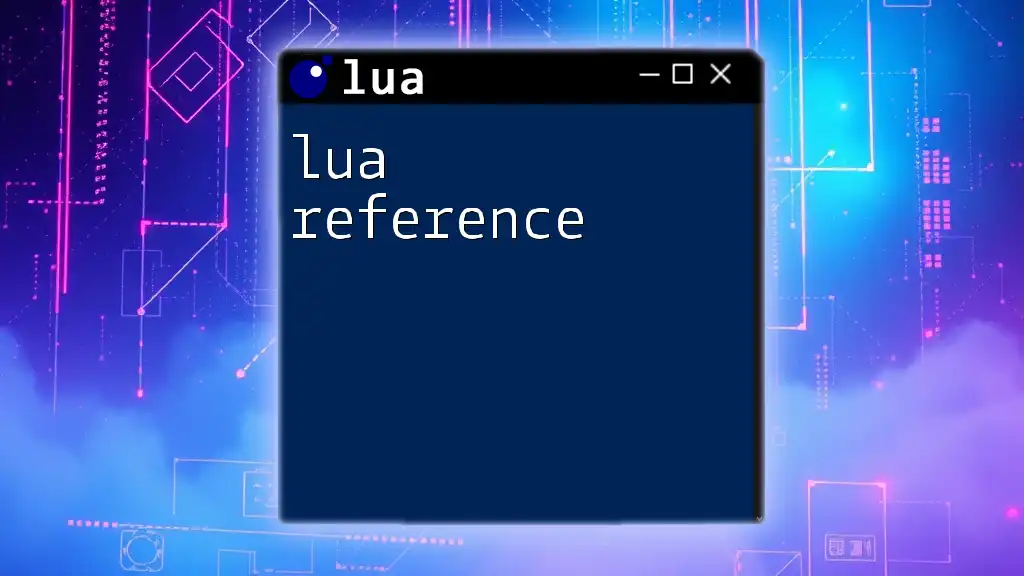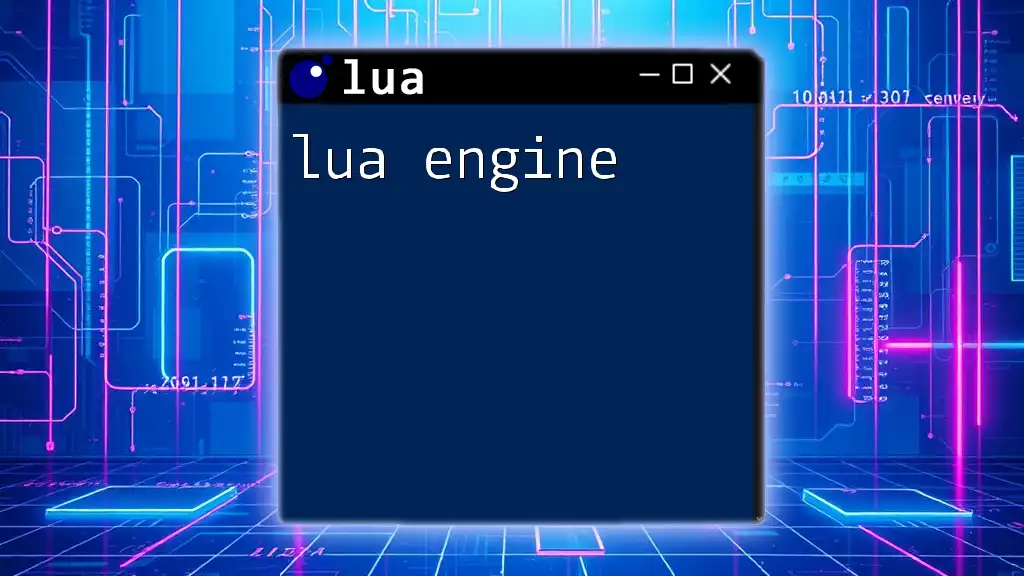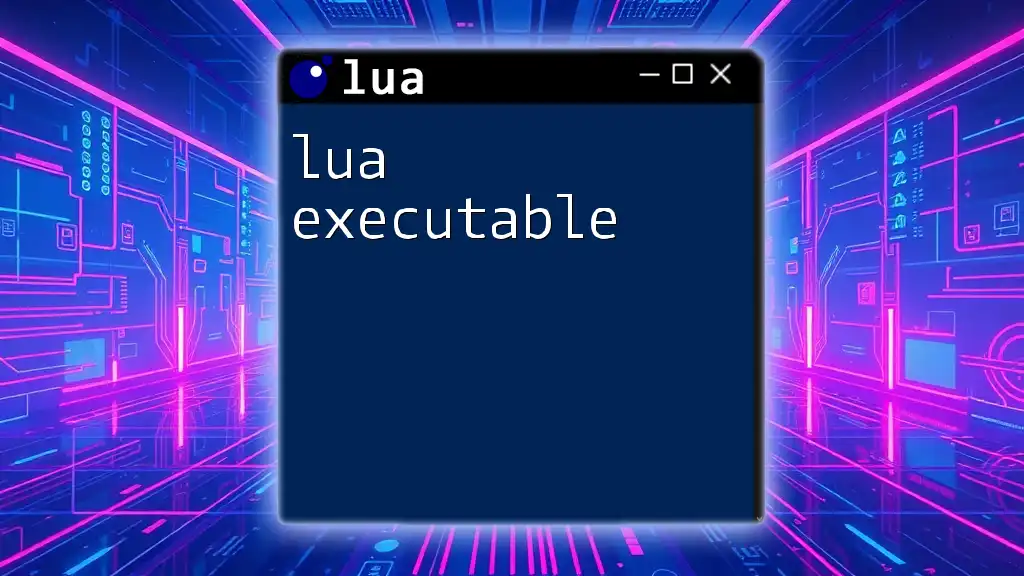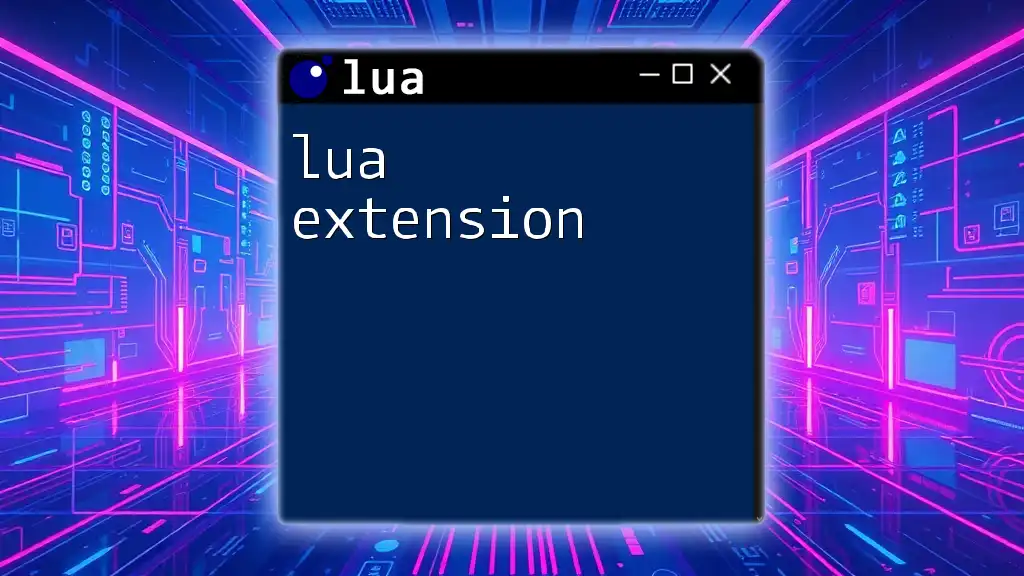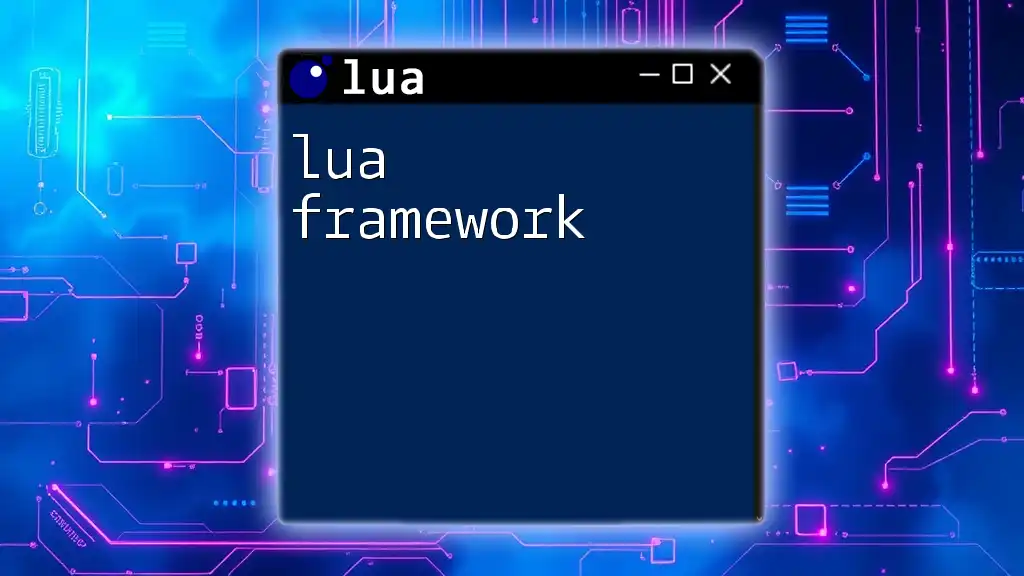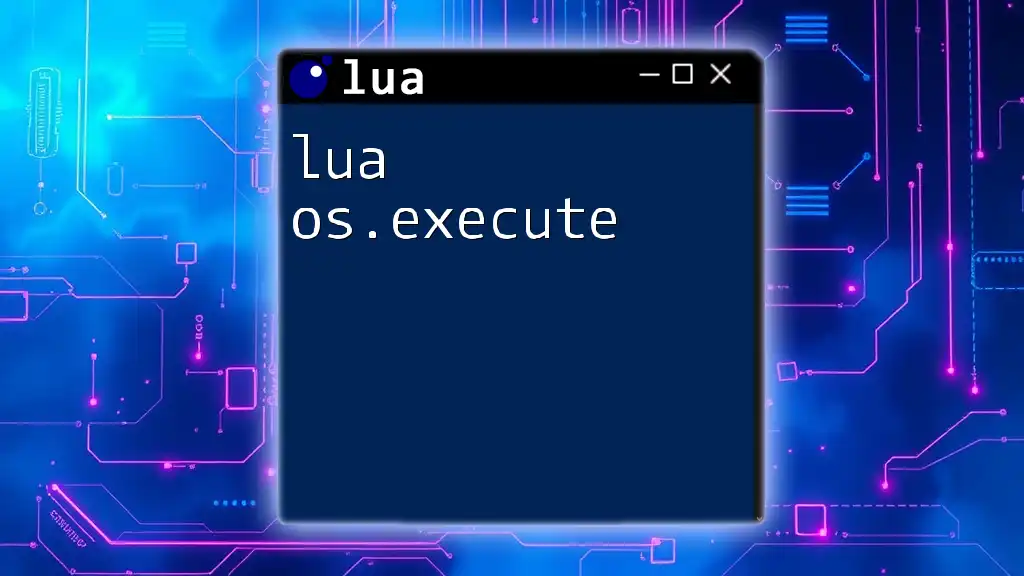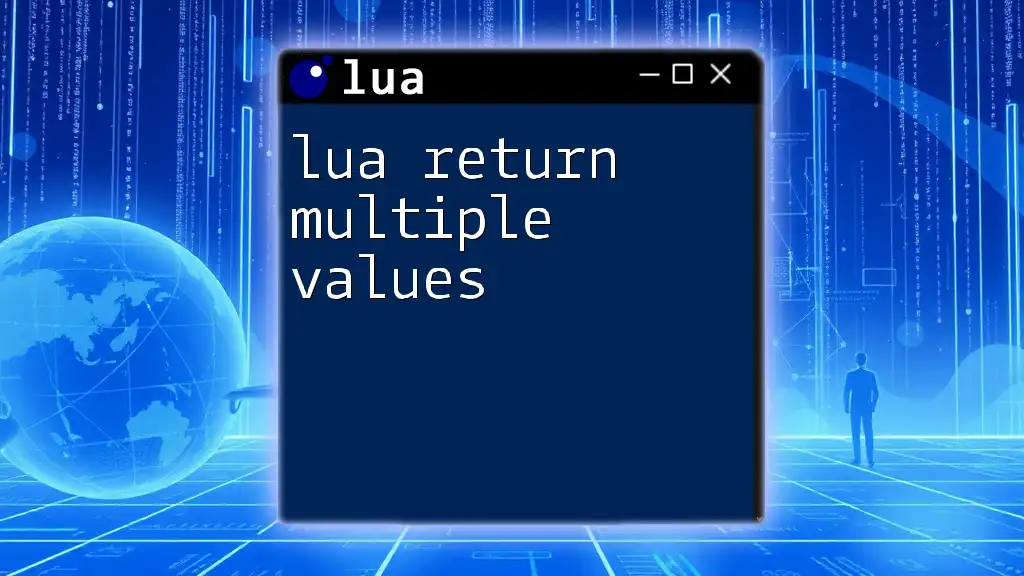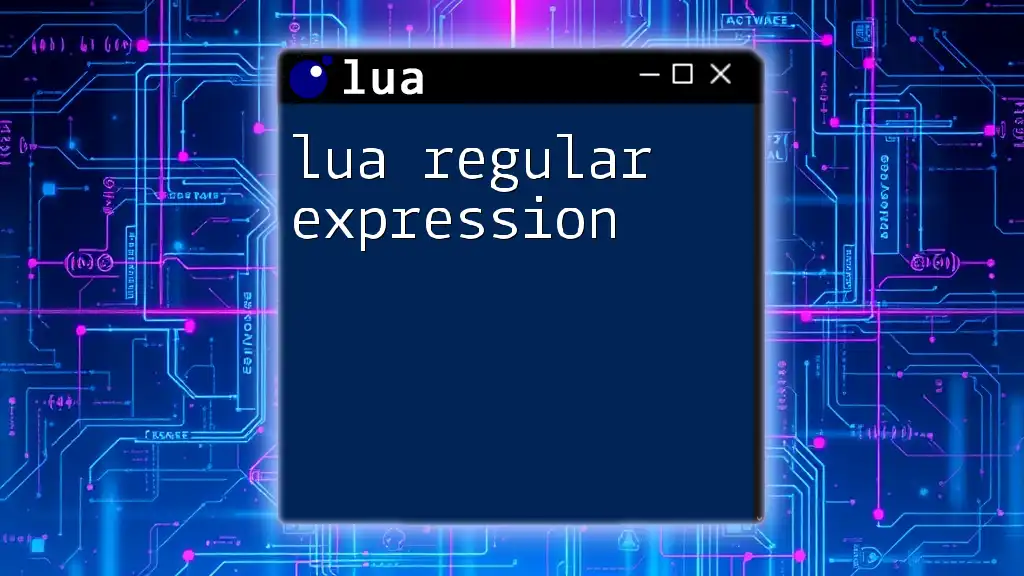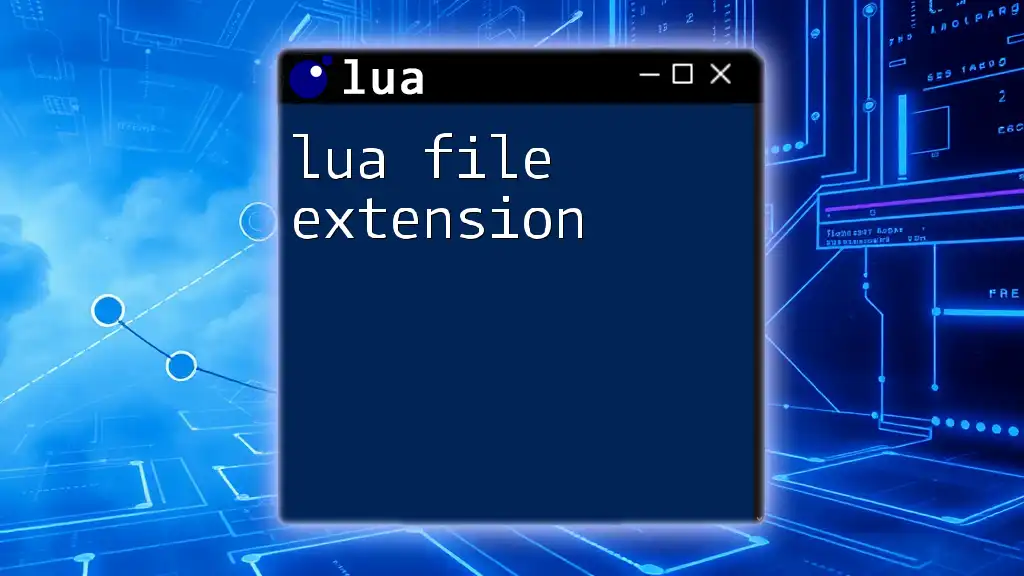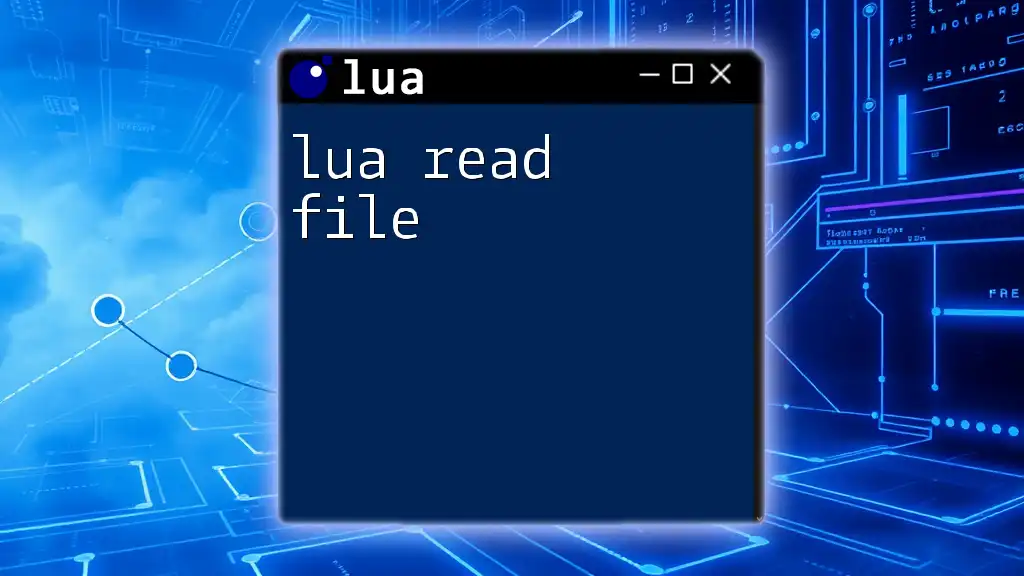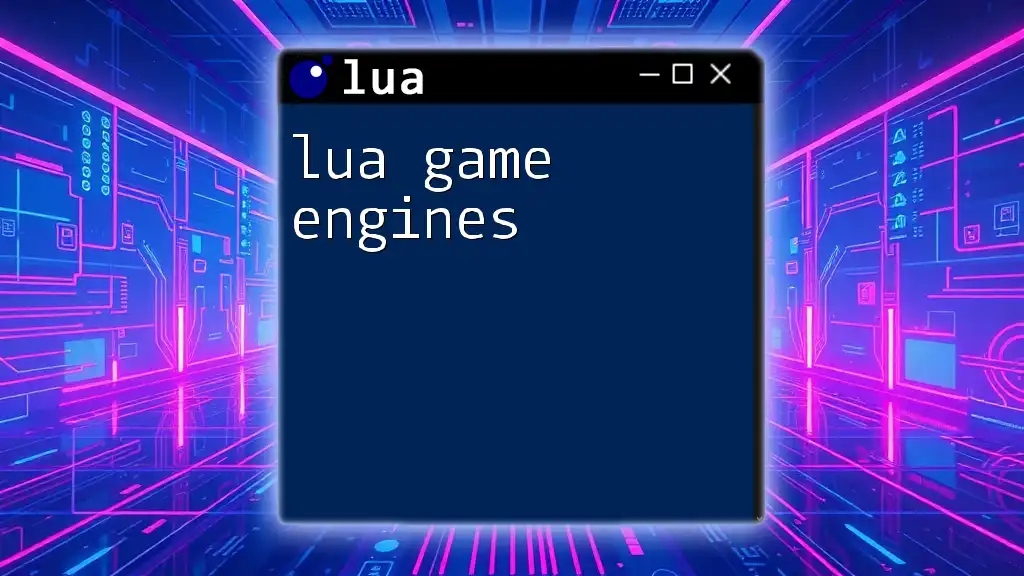A Lua reference is a concise guide or documentation that provides essential information and examples for using Lua commands effectively in programming.
-- Example of defining a function in Lua
function greet(name)
return "Hello, " .. name .. "!"
end
print(greet("World")) -- Output: Hello, World!
Understanding Lua Syntax
Basic Syntax Rules
Lua has a straightforward grammar structure which makes it accessible for newcomers and experienced developers alike. Each statement typically ends with a line break, and while indentation is not required, it is strongly recommended for improved readability.
Comments play a crucial role in making your code self-explanatory. In Lua, you can use `--` for single-line comments and `--[[ ... ]]` for multi-line comments. For example:
-- This is a single-line comment
--[[
This is a multi-line comment
that spans multiple lines.
]]
Lua Data Types
Understanding data types is fundamental when learning syntax in Lua. Lua offers several essential types:
-
Nil: Represents an absence of a value. It plays a critical role in managing state and handling errors.
-
Boolean: Values are either `true` or `false`. They are often used in conditional statements.
-
Number: Lua uses double precision floating-point numbers internally. There is no distinction between integers and floats; they are all treated as numbers.
-
String: Strings are a sequence of characters. You can create strings using single (`'`) or double (`"`) quotes. For example:
local exampleString = "Hello, world!" -
Function: Functions are first-class citizens in Lua, meaning you can assign and pass functions as values.
-
Table: The primary data structure in Lua, tables are versatile and can act as arrays or dictionaries. You define a table like so:
local myTable = { key1 = "value1", key2 = "value2" }
Defining Variables
When defining variables in Lua, you have the choice of local and global scopes.
-
Local Variables: Declared using the `local` keyword, they are only available in the block of code they were defined in. This is essential for preventing name clashes.
-
Global Variables: Declared simply without `local`, they can be accessed from any part of the script. However, overuse can lead to hard-to-find bugs.
For example:
local myVar = 10 -- Local variable
myGlobalVar = 20 -- Global variable
Control Structures in Lua
Control structures allow you to dictate the flow of your program.
Conditional Statements
Lua utilizes `if` statements for decision-making. A basic structure looks like this:
if condition then
-- block of code
elseif otherCondition then
-- alternative block of code
else
-- fallback block of code
end
For example:
local age = 18
if age < 18 then
print("Minor")
elseif age == 18 then
print("Just an adult")
else
print("Adult")
end
Loops
Loops allow you to execute a block of code multiple times.
- For Loop: A simple iteration structure.
for i = 1, 5 do
print(i)
end
- While Loop: Continues until a condition is false.
local count = 0
while count < 5 do
count = count + 1
print(count)
end
- Repeat-Until Loop: Similar to the while loop, but checks the condition at the end.
local num = 0
repeat
num = num + 1
print(num)
until num >= 5
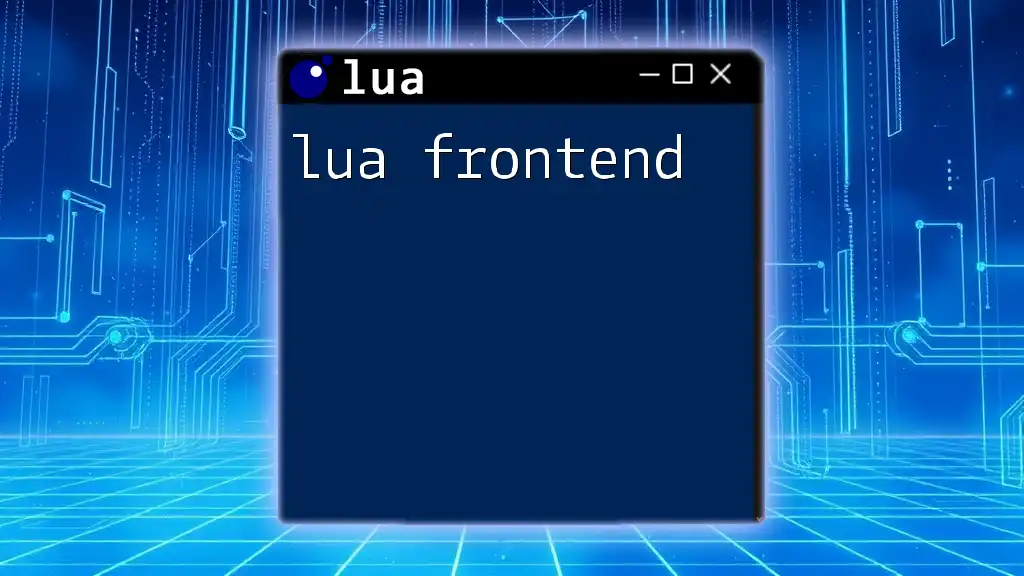
Functions in Lua
Functions are crucial in any programming language, and Lua is no different.
Defining Functions
You define a function using the `function` keyword:
function greet(name)
return "Hello, " .. name
end
Function Parameters
Functions can take parameters that allow you to pass data into them. Here is an example that demonstrates both input parameters and returning values:
function add(a, b)
return a + b
end
local sum = add(5, 10) -- sum will be 15
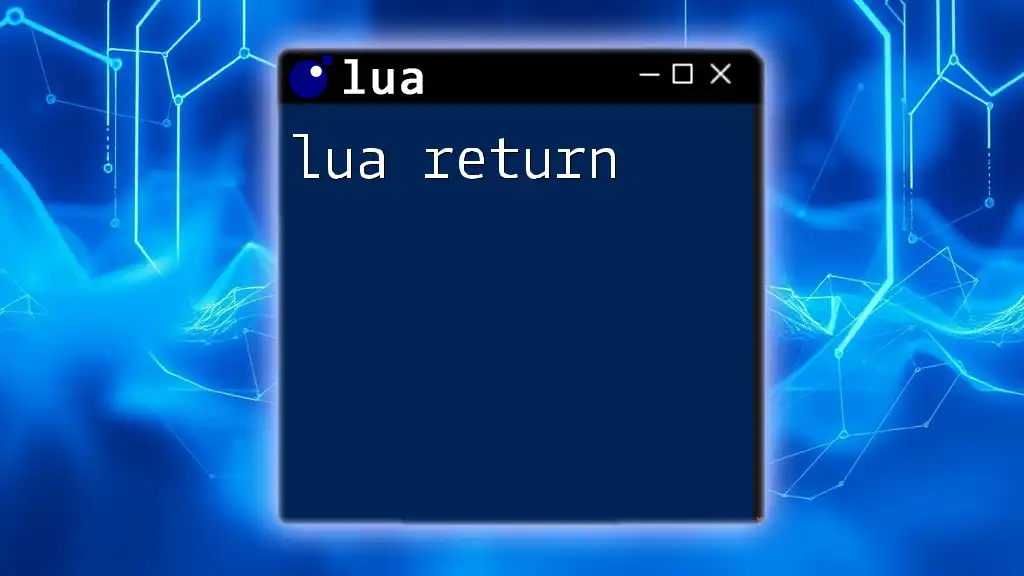
Tables in Lua
Tables are the most important data structure in Lua, used for both arrays and associative arrays.
Creating Tables
You can create a table with mixed data types as follows:
local mixedTable = { 10, "Hello", true }
Table Manipulation
You can insert and remove elements from tables easily. For instance, adding an element looks like this:
table.insert(mixedTable, 4) -- Inserts 4 at the end
table.remove(mixedTable, 1) -- Removes the first element
Iterating over Tables
You can iterate using `pairs` for associative arrays or `ipairs` for array-like tables. For example:
for key, value in pairs(mixedTable) do
print(key, value)
end
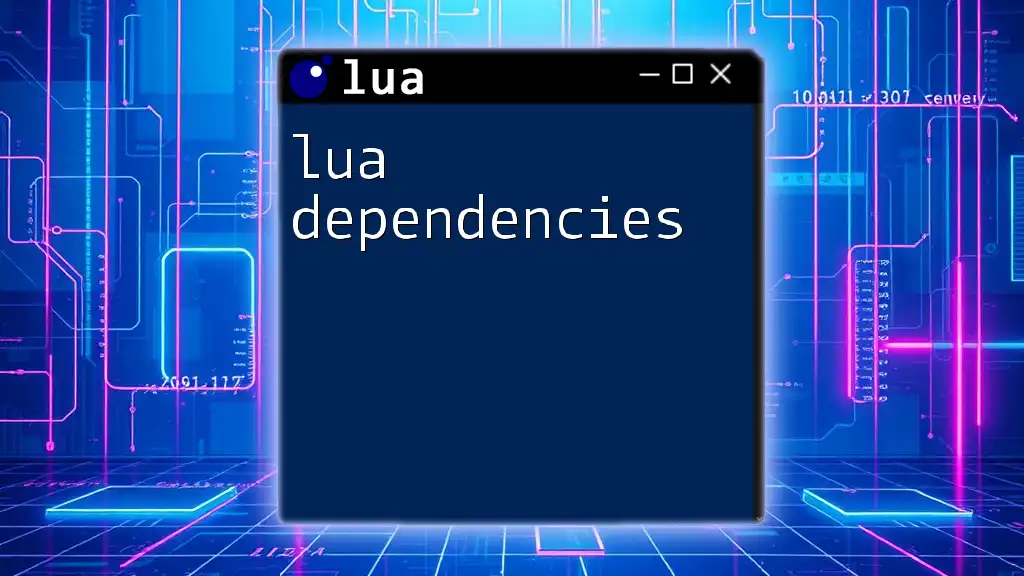
Error Handling in Lua
Error handling is essential for writing robust applications.
Understanding Errors
Errors can be of two types: Syntax errors, which occur when your code violates Lua’s grammar rules, and runtime errors, which occur during the execution of your program.
Using Pcall for Error Handling
Lua provides `pcall`, or protected call, to handle errors gracefully. Here’s an example:
local status, err = pcall(function()
error("This is an error message!")
end)
if not status then
print("Error occurred: " .. err)
end
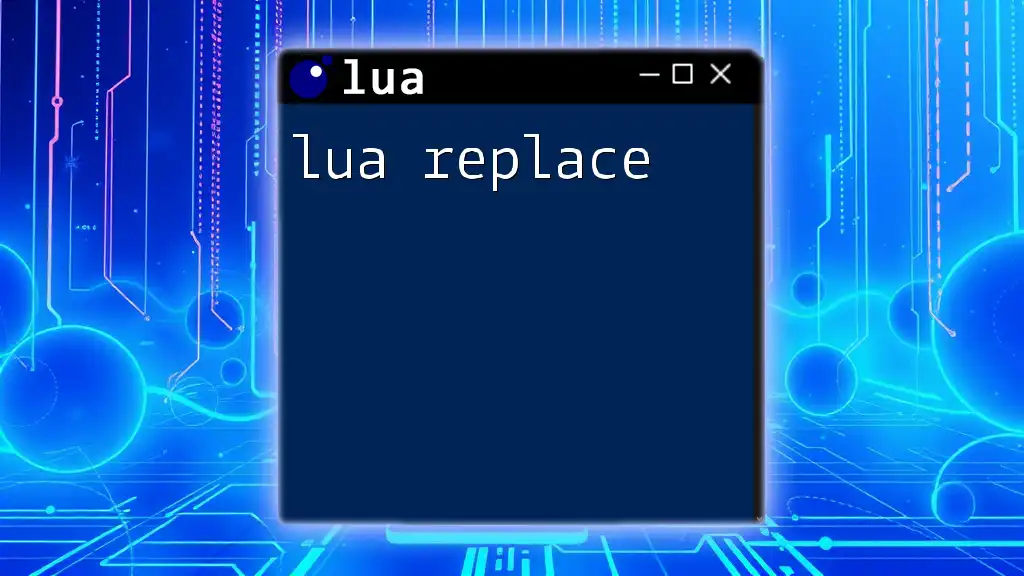
Lua Standard Libraries
Lua comes with several standard libraries that extend its functionality.
Overview of Lua's Standard Libraries
These libraries include:
- Table: For table manipulation.
- String: For string handling and manipulation.
- Math: For mathematical functions.
Commonly Used Libraries
For instance, the string library allows you to manipulate strings effectively:
local str = "Lua"
print(string.upper(str)) -- Converts to uppercase
The math library can be used for calculations:
local result = math.sqrt(16) -- Square root function
print(result) -- Outputs: 4
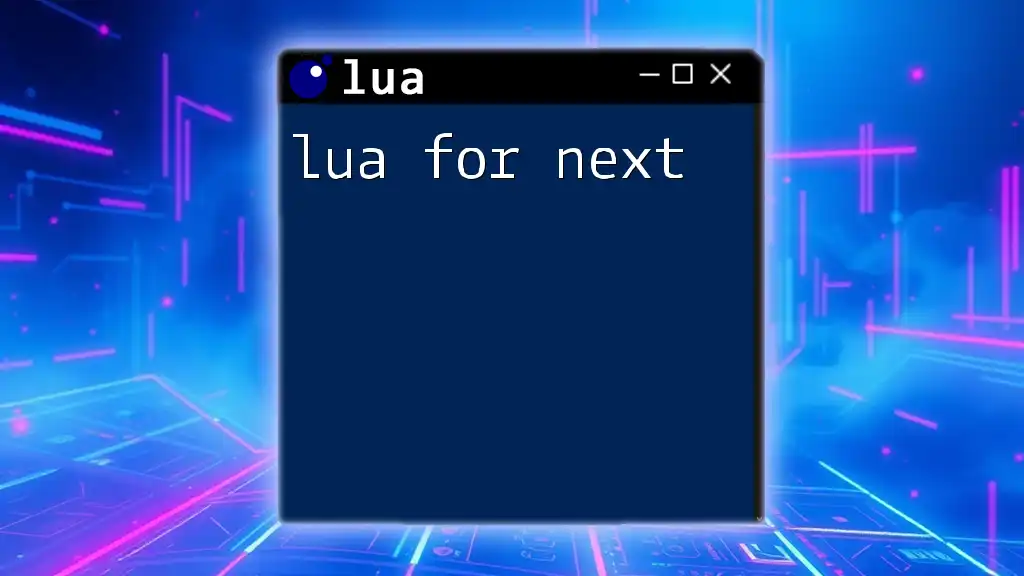
Practical Applications of Lua
Lua syntax and commands find usage in various domains.
Game Development
In game development, Lua is commonly embedded in engines like Unity and Corona SDK, allowing developers to script game logic easily. Its lightweight nature allows for speedy execution.
Scripting in Applications
Lua is often used for custom scripts in software applications, such as Adobe products, which require a flexible and powerful programming language to extend their capabilities.
Web Development
In web development, frameworks like Lapis utilize Lua for building web applications, showcasing its versatility beyond typical use cases.
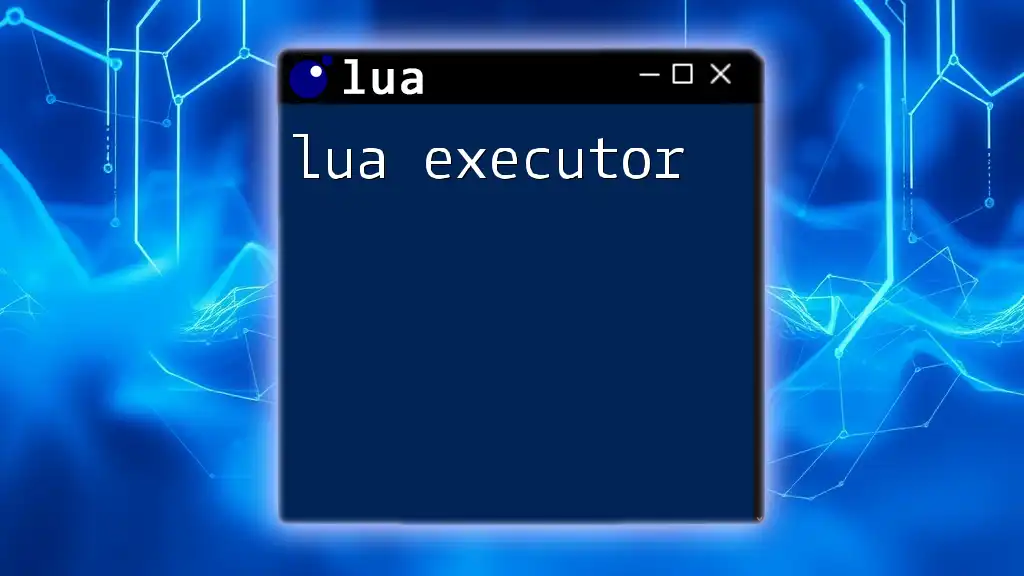
Conclusion
This comprehensive guide has walked you through important aspects of the Lua reference, from basic syntax to practical applications. Mastering these commands can significantly enhance your programming experience in Lua. We encourage you to practice these examples and explore more advanced topics in Lua to further your understanding and expertise in this powerful scripting language.

Additional Resources
To deepen your knowledge, consider exploring recommended books and online resources. Engage with community forums to get support and exchange ideas with other Lua programmers.
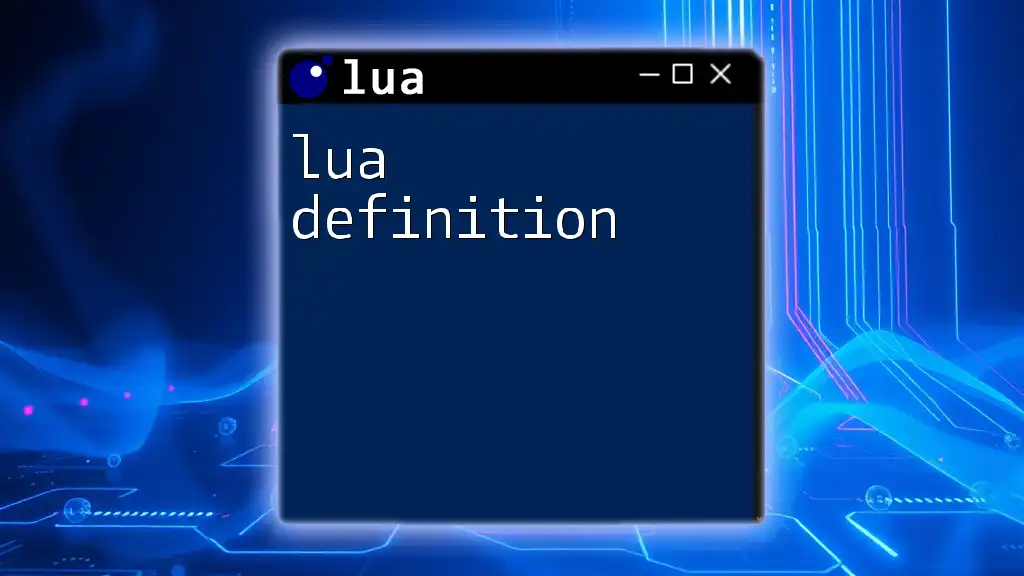
FAQs about Lua
You might have common questions as you start your journey with Lua. Feel free to seek answers and suggestions through various learning channels, enabling you to navigate your programming challenges efficiently.

